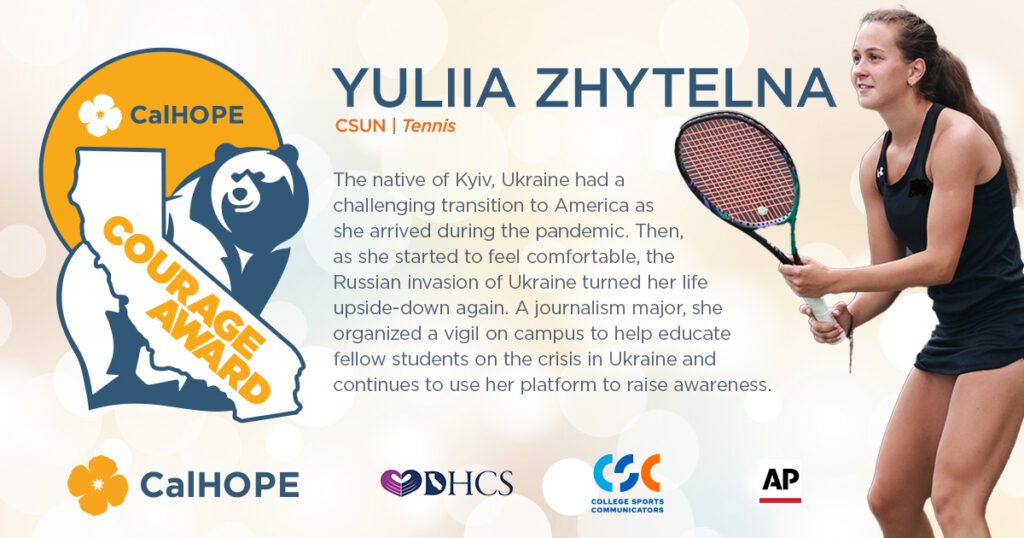Born in Kyiv, Yuliia began playing tennis at age 7 and seriously starting at age 10. With the encouragement of her coach and mother, she would skip school to practice more extended hours and travel to tournaments. However, the pressure of tennis being so much of her life and only perfection was acceptable made her realize that she needed a change. She accepted a scholarship from CSUN without informing her parents or coach. Three years later, this is still a sensitive issue with her coach.
Her transition to America was a challenge as she arrived during the COVID-19 pandemic. The decision to redshirt her freshman season allowed her to adjust to her new life and get her tennis game back on track. However, in February 2022, as she started to feel comfortable, the Russian invasion of Ukraine turned her life upside-down again.
Yuliia chose to take time away from the team to deal with the tragedy back home and focus her efforts on helping raise awareness about the plight of Ukraine and to support her family. The fact that her CSUN doubles partner and best friend, Ekaterina Repina, was Russian attracted news media interest. A journalism major, Yuliia worked with one of her professors to organize a vigil to help educate fellow students about the situation in Ukraine. She was also able to help her family in Kyiv by connecting them with the family of CSUN teammate Magdalena Hedzrak, whose family in Poland was able to provide them with housing after they emigrated to that country.
After getting back on the court with a grueling workout regimen over the summer, Yuliia played in all five fall tournaments for the Matadors, compiling an 8-6 singles record and a 7-4 doubles mark. She is projected to be in the top six in singles for CSUN and be a part of the top three doubles team.
“I never seriously thought about my mental health until I was diagnosed with depression and started having physical health issues,” explained Yuliia. “The relationship with my family and former coach, coupled with the situation in Ukraine, made me realize how everything affected me mentally, and that my mental health suffered before my physical health. I hope my story serves as an example to others that we can only be strong physically when we are strong mentally. I keep working on myself to make my closest people proud of me and so I can become the best version of myself as an athlete and human.”
“CalHOPE is honored to recognize student-athletes throughout the state who, despite setbacks, have overcome life’s challenges to continue to perform their best as both scholars and athletes. CalHOPE’s purpose is to build community resiliency and help people recover through free outreach, crisis counseling and support services. We hope that by sharing these stories student-athletes have experienced, we will all be inspired.”
Dr. Jim Kooler, Special Consultant for DHCS


